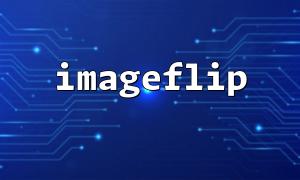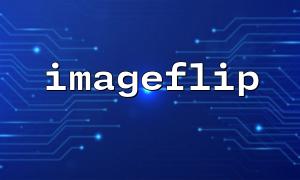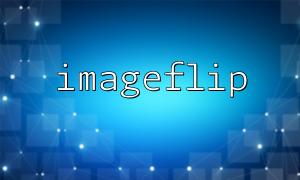In face recognition tasks, the orientation of the image is an important factor affecting the accuracy of recognition. Usually, images may rotate due to different shooting angles or device orientations, so it is very necessary to determine the correct orientation of the image before face recognition. This article will introduce how to determine the orientation of the image in combination with image preprocessing before face recognition and implement this process through PHP code.
Image preprocessing plays a crucial role in image analysis and computer vision. It includes steps such as denoising, scaling, cropping and orientation correction. When performing face recognition, it is first necessary to ensure that the image is in the correct direction through image preprocessing. These steps usually include:
Detect the rotation angle of the image : determine the direction of the image by analyzing the EXIF data of the image or based on the content of the image.
Rotate the image : Rotate the image to the correct direction based on the detected rotation angle.
Crop and zoom : Make sure the image is sized properly and the focus is on the face area.
Most digital cameras and smartphones store the rotation information of the image in the EXIF (Exchangeable Image File Format) data when taking photos. By analyzing the EXIF data, we can obtain the direction information of the image and then determine whether the image needs to be rotated.
PHP has built-in exif_read_data function, which can read EXIF data of images. With this function, the direction information of the image can be easily obtained and the image can be rotated based on this information. Here is an example of a PHP implementation:
<?php
// Loading image files
$imagePath = 'path/to/your/image.jpg';
// Get the imageEXIFdata
$exifData = exif_read_data($imagePath);
// examineEXIFdata中是否包含方向信息
if (isset($exifData['Orientation'])) {
// Get the image方向
$orientation = $exifData['Orientation'];
// Rotate the image according to direction information
switch ($orientation) {
case 3:
// 180degree rotation
$rotate = 180;
break;
case 6:
// 90Rotate clockwise
$rotate = -90;
break;
case 8:
// 90Rotate counterclockwise
$rotate = 90;
break;
default:
// No rotation required
$rotate = 0;
break;
}
// If you need to rotate the image
if ($rotate !== 0) {
$image = imagecreatefromjpeg($imagePath);
$image = imagerotate($image, $rotate, 0);
// Save the rotated image
imagejpeg($image, 'path/to/your/rotated_image.jpg');
imagedestroy($image);
}
} else {
echo 'Image NoEXIFdata,Unable to judge direction。';
}
?>
Load image file : Load JPEG format image file through imagecreatefromjpeg function.
Read EXIF data : The exif_read_data function obtains the EXIF data of the image, including the rotation information of the image.
Determine the direction of the image : Determine the rotation angle of the image by checking the Orientation field in the EXIF data. Common direction values are:
1: Normal, no rotation is required
3: 180 degrees rotation
6: 90 degrees clockwise
8: 90 degrees counterclockwise
Rotate the image : Use the imagerotate function to rotate the image to the correct direction.
Save the rotated image : Save the rotated image as a new file.
In addition to EXIF data, another method is to automatically detect the orientation of the image through content recognition. For example, a face detection algorithm is used to identify the face in an image and determine the rotation angle of the image based on the face position. In this way, even if the image does not have EXIF data, we can use the algorithm to infer its correct direction.
PHP itself does not have strong computer vision capabilities, but can use some third-party libraries, such as OpenCV or Tesseract OCR , to achieve content recognition.
When PHP is used in combination with OpenCV, you can use OpenCV's cv::CascadeClassifier to perform face detection, and then infer the direction of the image. For specific implementation, please refer to the PHP binding and related documents of OpenCV.
Image preprocessing is crucial in ensuring the accuracy of face recognition, and the correction of image orientation is an important link. By analyzing EXIF data or using content recognition technology, the PHP program can automatically determine the direction of the image and perform rotation correction to ensure that subsequent face recognition tasks can be carried out smoothly.















